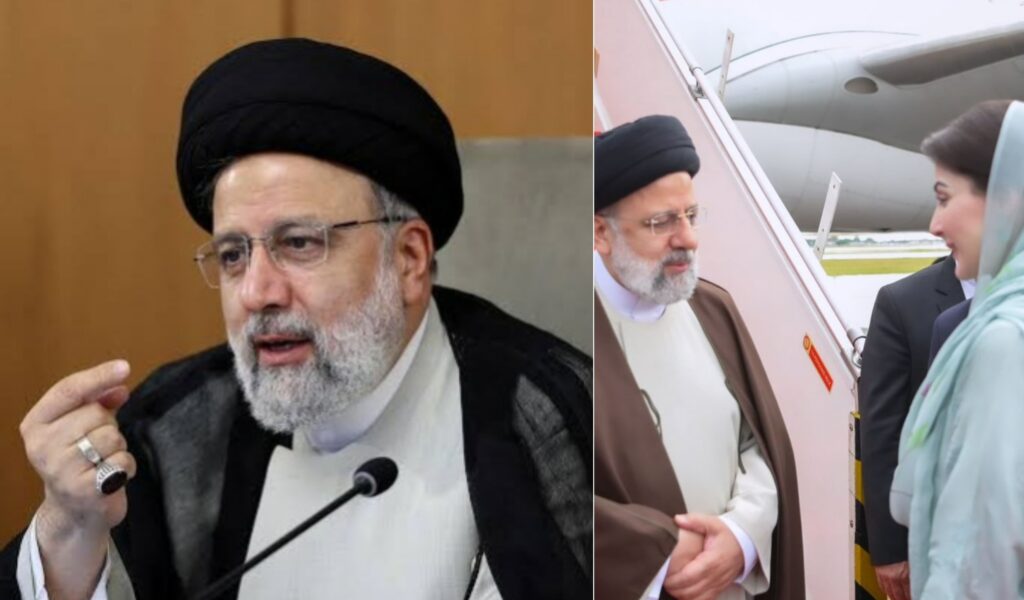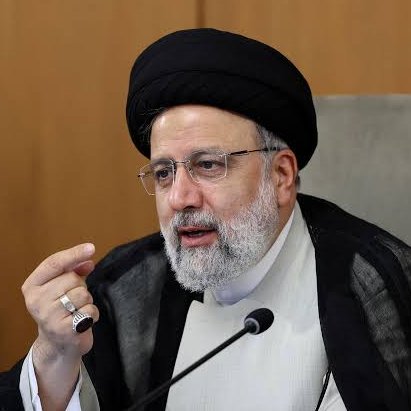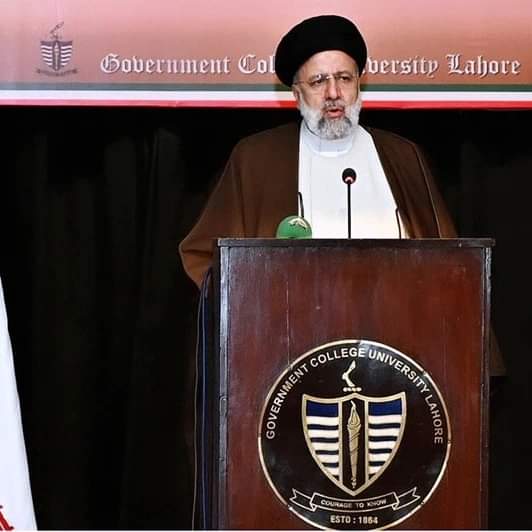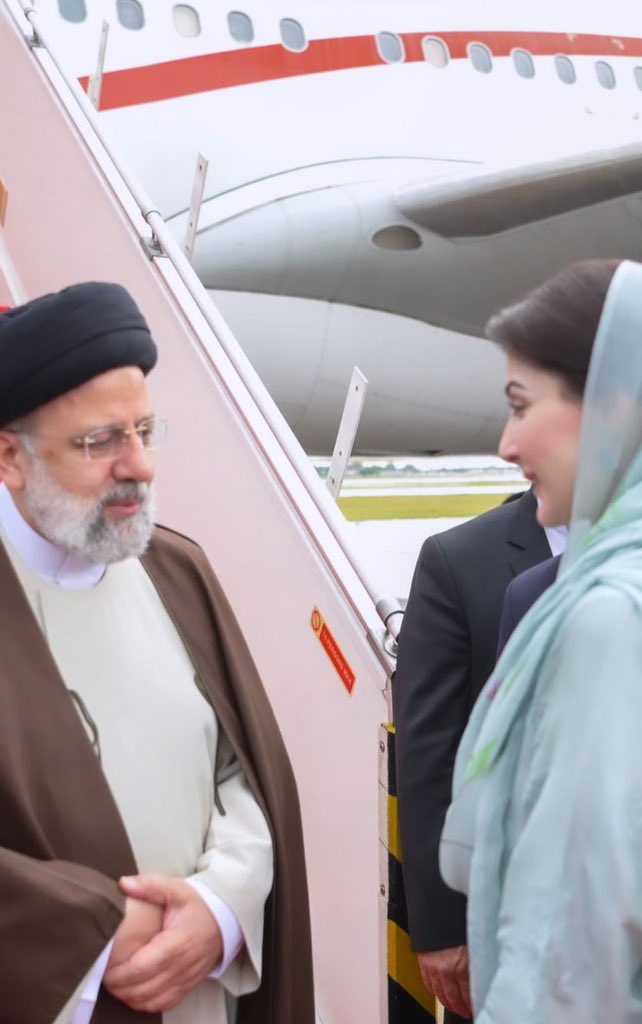Iranian President Ebrahim Raisi has Lack of Response on Kashmir Indicates a Delicate Diplomatic Situation. The President of Iran’s reluctance to discuss the matter demonstrates Iran’s careful balancing act as it works to maintain friendly ties with India.
As part of his Monday visit to Islamabad, Iranian President Ebrahim Raisi spoke with Prime Minister Shehbaz Sharif on enhancing bilateral relations. During their joint news conference, the Pakistani PM, however, was unable to win over Ebrahim Raisi on Kashmir. Iran is maintaining cordial relations with India while juggling a difficult balancing act, as seen by the president of Iran’s unwillingness to discuss the matter. Not only do they have diplomatic and commercial relations, but recent discussions between Iran and India on Palestine also highlight this.
For a three-day visit, Iran’s President Raisi landed in Islamabad on Monday. Shehbaz Sharif attempted to draw a comparison between Iran’s position on the Gaza issue and that of Kashmir at their joint news conference. “I thank you and the people of Iran for raising your voice for Kashmir,” he remarked, expressing gratitude to President Raisi.
But Raisi chose not to respond to the remark and avoided bringing it up in his own address, concentrating instead on Iran’s backing of people struggling against injustice, particularly in Palestine.
His lack of response was a jab at Mr. Sharif, who was unable to win Iran’s backing on the India-Pakistan conflict.
The Indian Embassy noted last year that Iran and India have had significant historical ties. The Indian Embassy in Tehran sent the following press release: “India and Iran have been intertwined for millennia. The modern relationship is characterized by strong people-to-people contacts, high-level interactions, commercial and connectivity cooperation, and strong historical and civilisational linkages. It also continues to expand.” The memo included information on high-level visits and bilateral ties between the two countries.
Indian Foreign Minister S. Jaishankar was received in Tehran in January by Iranian Foreign Minister Hossein Amir-Abdollahian. The topics of their talks included bilateral and multilateral relations with the BRICS countries, as well as the bloodshed in Palestine. Given Iran’s bilateral relations with Pakistan and India, it is imperative that it take a neutral stand on Kashmir.
Months after Iran and Pakistan launched retaliatory attacks against each other’s suspected terrorist hideouts, the president of Iran is making an official visit to Pakistan. It is a sign of both countries’ determined attempts to patch up their damaged relations. Pakistan’s first foreign leader to visit the nation since its contentious general elections on February 8 is President Raisi.
Why is the ties between Iran and Pakistan so important?
Pakistani experts on foreign policy have supported resuming contact with Iran in spite of the border disputes.
Pakistan’s borders with Afghanistan and India are both problematic. In light of the border tensions in January, senior Pakistani diplomat Maleeha Lodhi told Al Jazeera that maintaining a regular, stable relationship with Iran has always been crucial for Pakistan and continues to be so.
The goal of Islamabad and Tehran has been to increase their present bilateral commerce, which exceeds $2 billion.
According to Faisal, there is a substantial unofficial trade in crude oil and liquefied petroleum gas (LPG) between the two nations, as reported by Al Jazeera. He continued by saying that Balochistan province and other Pakistani border regions also receive power from Iran.
At the Mand-Pishin border crossing, Sharif and Raisi opened the first border market in May 2023.
Furthermore, there are strong cultural and religious links between the two neighbors; each year, tens of thousands of members of Pakistan’s Shia minority travel to Iran for pilgrimage.
900 km (559 miles) of shared border, according to Tabadlab’s Zaidi, hasn’t resulted in meaningful commerce connections or people-to-people interactions.
“Travel is limited to religious tourism, and trade occurs primarily outside the formal domain,” he stated.
The Iranian president set a goal of $10 billion in bilateral commerce the night before his trip, claiming that the two nations’ political and economic ties are not at the same level. They had set a $5 billion goal for bilateral trade in August.
The US, which has imposed a number of restrictions on Tehran due to its nuclear program, is opposed to the idea of building a pipeline that would allow Iran to export natural gas to Pakistan.
Faisal, from the University of Technology, Sydney, speculated that the talks would touch on the gas pipeline connecting Iran and Pakistan.
People also search for:
Who is the new president of Iran?
Ebrahim Raisi, the president of Iran, visits Mazar-e-Iqbal in Lahore.
Who supports Iran in war?
While the United governments and the Soviet Union discreetly backed Iraq’s war effort, Saudi Arabia, Kuwait, and other neighboring Arab governments publicly funded it, and Iran’s only significant friends were Syria and Libya.
Is Gaza part of Israel?
The smaller of the two Palestinian territories—the other being the West Bank—is Gaza, a political entity. Gaza is surrounded by Israel on the east and north and Egypt on the southwest on the Mediterranean Sea’s eastern shore.
Also, visit…
Green Line Issue for Samsung S Series Users in India in Free
Tata Imports Jaguar Land Rover Electric Vehicles are Planned Under a New Policy
WhatsApp New Updates: See What It Is
In the Maldives Election, the Pro-China Party is Expected to Win Handily
Oneplus Nord CE 3 5G Had a Huge Price Reduction in India after the debut of the Nord CE 4 5G.



